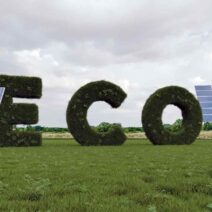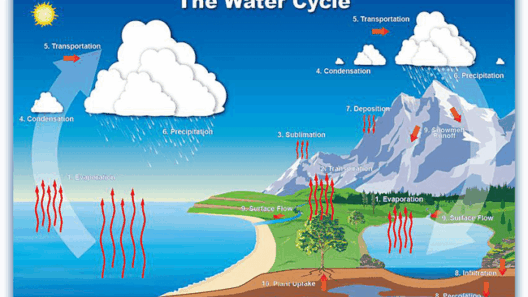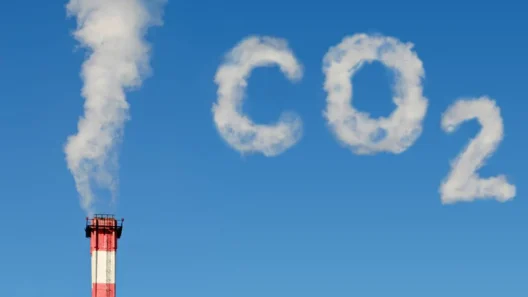The specter of climate change looms large, threatening ecosystems and human societies alike. The science is irrefutable: human activity has significantly contributed to the rapid shifts in the Earth’s climate. While awareness has burgeoned, the urgency for action remains paramount. Preventing climate change requires a concerted effort from entities across the globe, alongside individual commitments to adopt sustainable practices. This essay elucidates how we, collectively and individually, can pivot toward a more sustainable future.
To initiate meaningful change, global commitment is indispensable. Countries must adhere to international accords that seek to curtail greenhouse gas emissions, such as the Paris Agreement. This remarkable treaty embodies a collective ambition: to limit global warming to well below 2 degrees Celsius, whilst striving for 1.5 degrees Celsius. Such aspirations necessitate revolutionary alterations in energy production, with a shift from fossil fuels to renewable sources like solar, wind, and hydroelectric power. These transformations not only mitigate environmental degradation, but they also engender job creation in burgeoning industries.
Furthermore, governments can implement and enforce stringent environmental regulations aimed at reducing emissions. Cities worldwide are increasingly transitioning towards sustainable transport solutions, favoring public transit and non-motorized options like cycling and walking. For instance, urban planning initiatives that prioritize pedestrian-friendly infrastructure and electric vehicle charging stations serve dual purposes: they enhance livability and mitigate carbon footprints. Progressive policies, such as carbon pricing and tax incentives for green technologies, can galvanize businesses and institutions to adopt eco-friendly practices.
In tandem with policy-making, corporate responsibility must also evolve. Enterprises ought to recognize their role in this existential crisis. Implementing sustainable practices not only cultivates a positive corporate image but can also yield significant financial savings. For instance, transitioning to energy-efficient systems can result in decreased operational costs in the long run. Additionally, companies can engage in circular economy practices, wherein waste is minimized and resources are reused. The “reduce, reuse, recycle” mantra should become more than just a slogan; it must be an intrinsic foundation of business strategy.
As industries modernize and policies evolve, individual actions remain critical in thwarting climate change. Everyday choices collectively wield considerable influence. Opting for a plant-based diet, even occasionally, significantly lowers one’s carbon footprint. The livestock industry is a leading contributor to methane emissions, a greenhouse gas that is significantly more potent than carbon dioxide. By reducing meat and dairy consumption, individuals can partake in the solution, as dietary habits are one of the most impactful avenues for reducing personal emissions.
The usage of public transportation or carpooling can also mitigate harmful emissions. Even small actions, such as consolidating errands into one trip, significantly decrease the frequency of vehicle use—lessening congestion and pollution. Commuting sustainably not only reduces ecological impact but also fosters community engagement. Friends and neighbors become collaborators in seeking more sustainable ways of living, thus forging stronger social ties and an increased sense of accountability.
Moreover, a commitment to minimizing waste can yield profound benefits. Simple yet effective practices, like utilizing reusable bags, bottles, and containers, can dramatically reduce plastic pollution—the bane of our oceans and wildlife. The adoption of minimalism—focusing on quality over quantity—can cultivate a mindset where consumption is scrutinized. This philosophical shift encourages individuals to derive value from experiences rather than material possessions, fostering a more sustainable and fulfilling lifestyle.
Receiving education on climate topics is imperative. Knowledge empowers action; thus, incorporating environmental education into academic curricula is vital. Awareness programs can spur enthusiasm and equip the younger generation with the understanding necessary to navigate and combat climate change. By organizing community workshops and discussions about sustainable practices, individuals can mobilize their communities, transforming concern into impactful local actions.
Additionally, supporting local and sustainable businesses nurtures community resilience while championing environmentally friendly practices. Intentionally investing in local enterprises reduces carbon emissions often associated with transporting goods over long distances. When possible, sourcing produce and products from local markets supports regional economies and often mitigates harmful agricultural practices that exploit land and water resources.
Importantly, advocating for policy changes should be a communal endeavor. Engaging in dialogues with local representatives about climate initiatives fosters a culture of accountability and transparency. By demanding that policymakers prioritize sustainable practices, individuals can ensure that climate change remains a pivotal issue on the political agenda. Civic engagement and activism are vital components of a holistic approach to combating climate change.
Ultimately, while the challenges are daunting, they are not insurmountable. The collective effort—spanning global initiatives, corporate responsibility, and individual actions—forms the bedrock upon which our response to climate change can be built. It is not merely about prevention; it is about reimagining our relationship with the planet and fostering a sense of stewardship for future generations. The momentum for change has begun; with curiosity and courage, we can create a sustainable future together.




